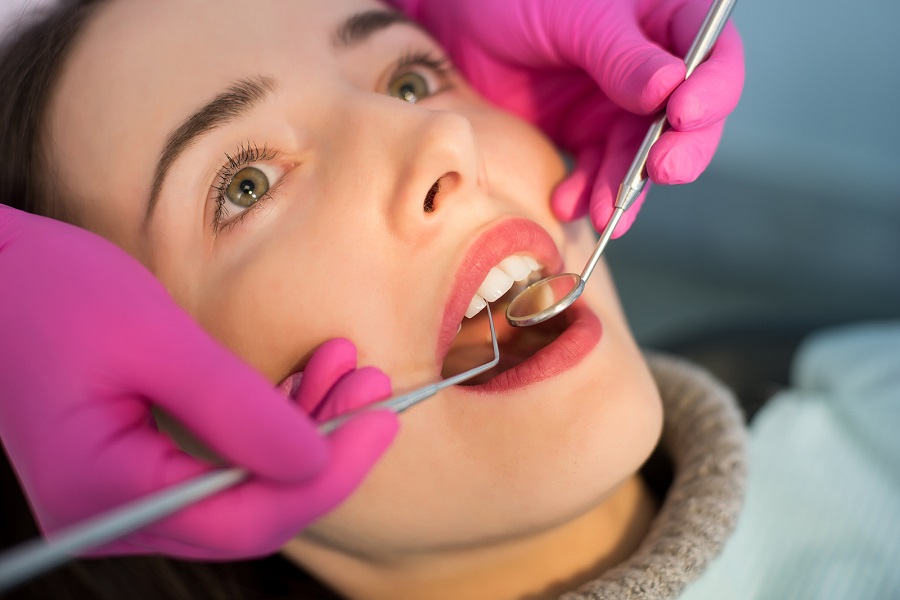Recognizing the Symptoms of Early Periodontal Disease
Posted by CENTER FOR ADVANCED DENTISTRY Jun 04, 2021

About half of adults in the US have periodontal disease, to some degree, according to the Centers for Disease Control and Prevention. Just because it’s common, though, doesn’t mean you shouldn’t take it seriously. Left untreated, the inflammatory condition also known as gum disease can lead to tooth loss and raise your risk for lung infections, premature labor, low infant birth weight, and lung infections. Recognizing initial symptoms of gum disease can help you and your dentist take action early on, lowering your risk for complications.
To find out if you’re experiencing symptoms of periodontal disease or another dental condition, schedule an appointment at Center for Advanced Dentistry.
Sore, swollen, or bleeding gums
Before more obvious symptoms of periodontal disease, you can develop gingivitis—the medical term for swollen, inflamed gums. Your gums may also bleed when you brush or floss your teeth and feel sore or tender to the touch. Thankfully, improved brushing and flossing habits can help prevent or reverse these effects.
Bad breath
Periodontal disease is an infectious disease, brought on by the buildup of plaque. Bacteria involved stimulate the formation of toxins. Among other effects, such as damage to tissues in your mouth and gum irritation, these factors can bring about foul-smelling breath. You may also experience an unpleasant taste in your mouth.
Tooth sensitivity to hot or cold
If you wince when you sip a hot or cold beverage because of tooth pain, you may be experiencing early symptoms of periodontal disease. This happens because inflammation brought on by the disease can pull back or destroy gum tissue and bone, leaving tooth roots exposed. Though this pain tends to be temporary, you should still have it addressed by your dentist if it happens regularly.
Loose teeth
As gum disease progresses, the gaps caused by the pulling away of gum tissue can cause instability of permanent teeth. You might notice one loose tooth, or several. Your dentist can then check the depth of the pockets surrounding those teeth to determine whether you have periodontal disease.
If periodontal disease is diagnosed early enough, treatment tends to be mild and may include an antibiotic injected at points of inflammation and improved dental practices, such as more frequent professional cleanings and better flossing and brushing techniques. Down the line, affected teeth may fall out or require professional extraction.
To learn more, start improving your dental health, and prevent or manage gum disease, schedule an exam at Center for Advanced Dentistry by phone or using our online booking feature.
Visit Our Office
Office Hours
- MON - THU7:00 am - 5:00 pm
- FRI - SUNClosed





